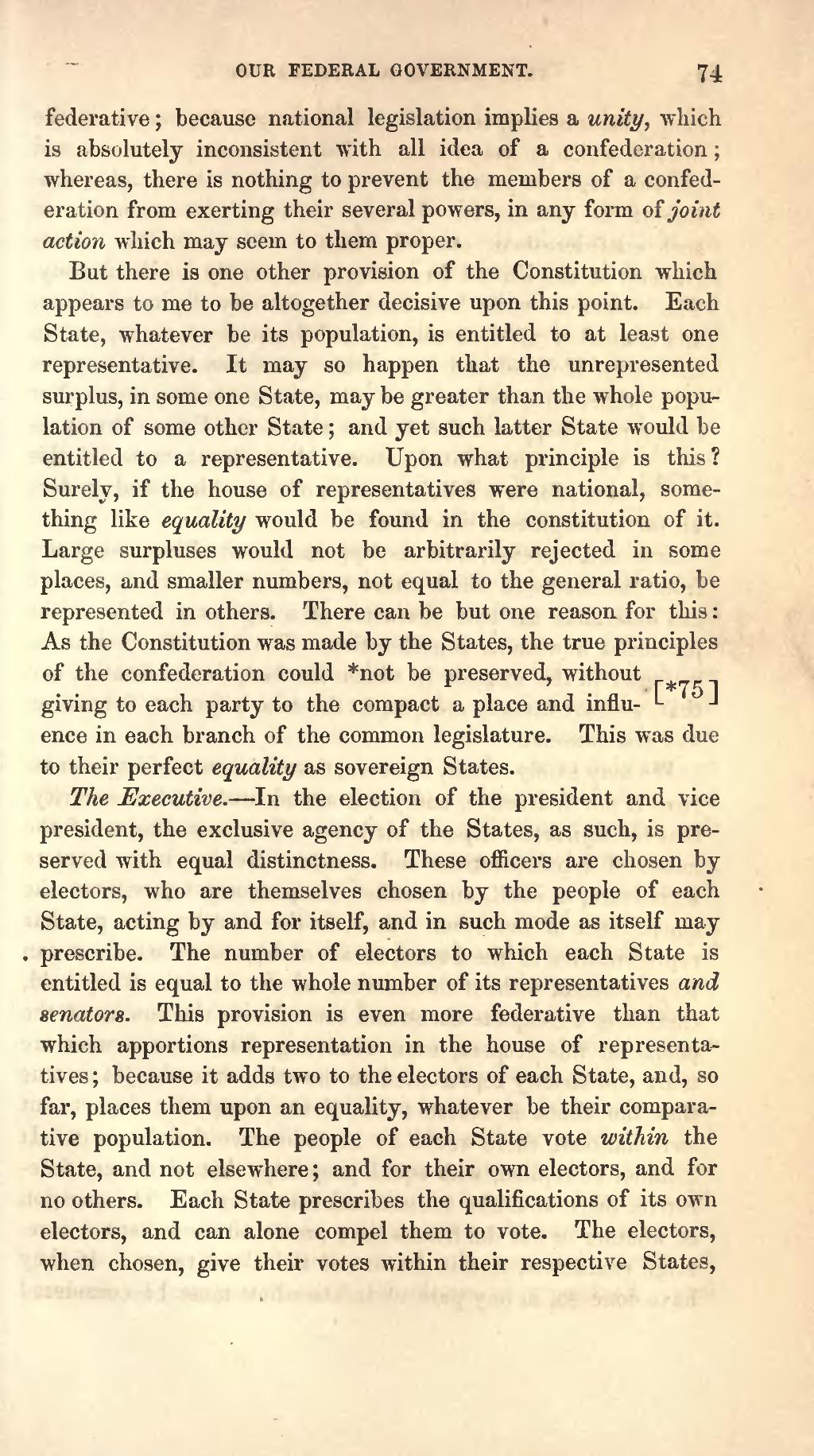federative; because national legislation implies a unity, which is absolutely inconsistent with all idea of a confederation; whereas, there is nothing to prevent the members of a confederation from exerting their several powers, in any form of joint action which may seem to them proper.
But there is one other provision of the Constitution which appears to me to be altogether decisive upon this point. Each State, whatever be its population, is entitled to at least one representative. It may so happen that the unrepresented surplus, in some one State, may be greater than the whole population of some other State; and yet such latter State would be entitled to a representative. Upon what principle is this? Surely, if the house of representatives were national, something like equality would be found in the constitution of it. Large surpluses would not be arbitrarily rejected in some places, and smaller numbers, not equal to the general ratio, be represented in others. There can be but one reason for this: As the Constitution was made by the States, the true principles of the confederation could [ *75 ]*not be preserved, without giving to each party to the compact a place and influence in each branch of the common legislature. This was due to their perfect equality as sovereign States.
The Executive.—In the election of the president and vice president, the exclusive agency of the States, as such, is preserved with equal distinctness. These officers are chosen by electors, who are themselves chosen by the people of each State, acting by and for itself, and in such mode as itself may prescribe. The number of electors to which each State is entitled is equal to the whole number of its representatives and senators. This provision is even more federative than that which apportions representation in the house of representatives; because it adds two to the electors of each State, and, so far, places them upon an equality, whatever be their comparative population. The people of each State vote within the State, and not elsewhere; and for their own electors, and for no others. Each State prescribes the qualifications of its own electors, and can alone compel them to vote. The electors, when chosen, give their votes within their respective States,
